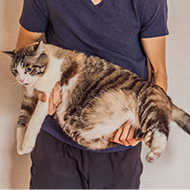Study finds novel strain of bacteria with probiotic qualities.
Scientists have found a gut bacteria in wild wolves that may help alleviate canine inflammatory bowel disease.
The discovery of the bacteria, which has probiotic potential, could be a step towards the creation of a dietary supplement or food additive to treat domestic dogs with the disorder.
The novel strain of Paenibacillus was found in gastrointestinal material collected from a dead North American grey wolf the day after it was hit by a car. It was one of 20 gut bacteria isolated by researchers at Oregon State University.
The researchers were keen to look at the gut microflora of a wild wolf as a potential source of probiotics, as the gut microbiome of domestic dogs has been altered by their diet.
Dr Bruce Seal, part of the research team, said: “The modern dog diet, high in carbohydrates, does not reflect a wolf's diet – for example, starches in processed dog food are resistant to digestion, and that can have a negative impact on the microbial community in a dog's GI tract and in turn its gastric physiology.”
Preliminary genetic analysis showed that the novel strain, like other types of Paenibacillus, had probiotic qualities.
The team then performed a whole genome sequencing of the novel strain. The results showed that the size of the genome was similar to other closely related Paenibacillus species. Genes were found that encode enzymes which help digest carbohydrates and others that synthesise antimicrobials.
Dr Seal added: “Taking everything into account, this bacterial isolate could be a potential useful probiotic for domestic dogs.”
Following this discovery, the researchers plan to perform whole genome sequencing on more of the isolated specimens.
The study has been published in the journal Applied Microbiology.
Image (C) Shutterstock






 The veterinary mental health charity Vetlife is inviting the veterinary community to join it for a sponsored cold-water dip.
The veterinary mental health charity Vetlife is inviting the veterinary community to join it for a sponsored cold-water dip.
